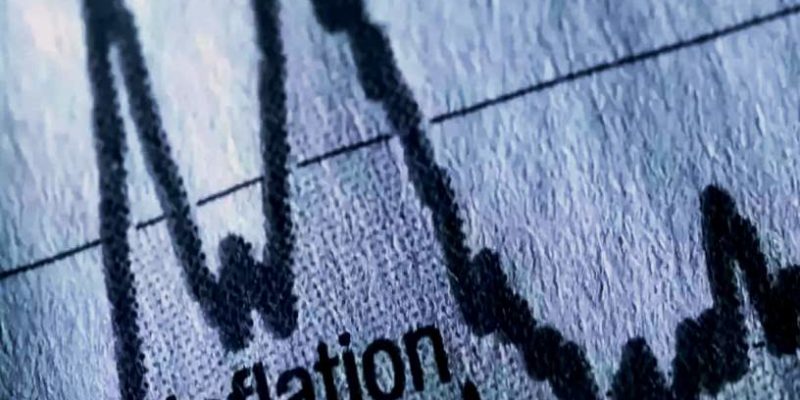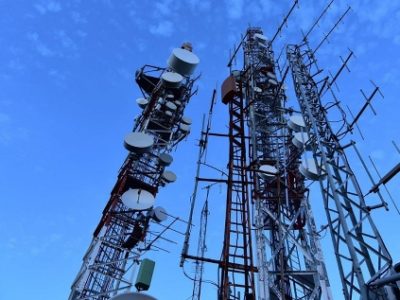Global Economic Woes
With only about a month before the end of 2022, it is difficult for the year to be remembered for anything other than the war in Ukraine and the chaotic shock waves that inflation drove into the fabric of the global economy. Largely driven by surging costs in prices of food and utilities, the situation was aggravated at the time the global economy was starting to show signs of recovery following the gripping Coronavirus induced recession.
RELATED: Nigerians to pay more for telecoms services as operators lament diesel scarcity, insecurity
Inflation figures in the US reached new levels not experienced in forty years, as the Bureau of Labour reported 8.6% for the month of May 2022, the highest since 1981. In the UK, it has been a similar scenario, with 9% inflation quoted for May 2022, the highest since 1982.
It is pretty much the same across the globe with Spain, Greece, France, Portugal among others, all caught in the web of inflation. Turkey’s jarring 54.8% is easily the worst among all countries captured in the report.
Double whammy for businesses in Nigeria with no silver bullet in sight; inflationary pressures as a result of currency devaluation, increased diesel and energy costs and food inflation due to insecurity
Bringing it closer to home, the alarm bells are ringing for Nigeria, with the National Bureau of Statistics recording the inflation rate at 20.77% for September 2022 while analysts project 21.32% for October 2022. Although Nigeria is faring better than neighbouring Ghana, whose inflation figure stands at 40.4% for October 2022, the implications of this on the cost of doing business in Nigeria are significant.
More challenging is the proposed 17.4% increment in electricity tariff for businesses within the EKO Electricity Distribution Company area, effective 1st January 2023, in-line with the July 2022 review of the Multi-Year Tariff Order by the Nigerian Electricity Regulation Commission (NERC).
This will adversely impact the formal economy, by increasing the cost of doing businesses within the jurisdiction of the power distribution company, forcing such businesses to contend with trade-offs to deal with these higher costs.
With diesel generators being the leading source of backup power in Nigeria and a litre of diesel selling for between N780 and N800, the situation has exacerbated to the point that some of the financial institutions, hitherto thought to operate above the high cost of doing business in the country, have had to reduce their hours of operation to save costs.
With power being a critical part of operations for most companies either in telecommunications, media, banking, manufacturing and tech, the impact on bottom line is huge when the cost of diesel and power subscriptions are factored into monthly and annual expenditure. More unsettling is the fact that inflation, as far as Nigeria is concerned, has continued to grow almost on a monthly basis. The September 2022 figure at 20.77%, the highest in 17 years, was up from the 20.52% posted for August 2022 and 19.64% for July 2022.
If inflation, high cost of diesel and increase in electricity tariff are the factors businesses in Nigeria have to grapple with, their journey towards margins, the basic rationale behind setting up a business, would be considered tortuous by any analyst. How much so when the thorny issue of currency devaluation is added to the mix?
With the currency devaluation, Nigerians have seen the Naira exchange for dollar at the rate of N438 to $1, up from the prevailing N413/$1 rate a few months back at the official market. However, this is now only the case on paper, with the crushing unavailability in official markets leading to a surge in the parallel markets.
Although there has been a reprieve of sorts for the Naira in the last few days, the currency is still being exchanged for between N710 and N780 in the parallel market.
Africa’s growing digital economy is not immune from the impact of these cost pressures
With Nigeria being one of Africa’s largest ICT markets in terms of telecom subscribers and internet users, the surging prices are placing tremendous pressure on the industry. Telecom operators, data center providers and companies running their own ICT infrastructure are facing this onslaught of high prices.
At a time when digital transformation is viewed as critical for the economy to improve its productivity, the sector is under pressure from higher costs which it is seeking to pass on to businesses and consumers.
Unlike the banking industry and brick and mortar establishments that are able to cut back service hours, networks and data centers are required to run 24X7 whether they are utilized by a handful or millions of customers and subscribers and these always-on operations are placing tremendous cost pressures on these companies.
For businesses, even more than for households, it is a case of double jeopardy as they have to bear the cost of back-up power with diesel, while also covering the increasing costs of grid electricity, or at least the little or nothing of it which they enjoy.
It is remarkable that Nigeria has witnessed the entrants of many new data center operators in recent times and there are questions if these operators will be able to get services off the ground with low public power availability and high costs of diesel back up.
Tough decisions ahead
These developments are forcing data service providers, manufacturers, FMCGs, similar to businesses in Europe, to review prices as the only way to stay afloat, while ensuring continuity of services to customers.
As the year comes to an end and businesses put together their strategies for the year ahead, some difficult decisions need to be made, to weather the stormy waters that lie ahead.
COVER PHOTO: The Economic Times





























